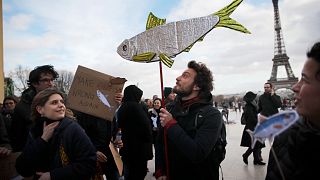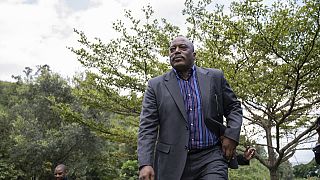South Africa
The largest public display of human-fossils relatives opened in South Africa on Thursday.
The display contain over 1,000 original fragments of Homo naledi, named in 2015 after a rich cache of its fossils. Initially believed to be around 2.5 million years old, subsequent dating showed Homo naledi was roaming the African bush between 236,000 and 335,000 years ago.
“There’s almost a thousand bones of Homo naledi from the ‘dinaledi’ chamber that was the original chamber we described in 2015. Also behind that, the ‘lesedi’ chamber and that chamber has ‘neo’ in it, one of the most complete skeletons ever discovered but also the most complete skeleton of Homo naledi,” said the project leader Prof. Lee Berger.
The exhibition which was launched on “Africa Day” in an area named the “Cradle of Mankind,” coincided with the publication of a controversial paper that questions the widely-held view that Africa is home to human evolution.
“That is not enough evidence to make such an extraordinary claim. The headlines overstated the facts, I think on Africa Day, it’s still safe to say, that humanity owes its origins to this continent,” Prof. Lee added.
But this view was challenged this week with the publication of a paper detailing fossils from Greece and Bulgaria of an ape-like creature that lived 7.2 million years ago.













01:00
Pix of the Day: September 8, 2025
Go to video
The linguistic diversity of Africa and Its absence in AI development
01:15
Archaeologists stumble on rare statue of Egyptian god Pataikos
01:05
Sixth edition of Comic Con Africa draws thousands of fans to Johannesburg
Go to video
Johannesburg fire survivors still homeless two years after tragedy
00:59
Rare African moon moths hatch in Bulgaria